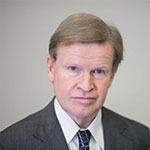
Exclusive Interviews | Apr 19,2025
Jun 3 , 2023
By Harold James
Globalization brings the world together by moving people, things, ideas, money, and much else. But talk of globalization has become increasingly divisive, with competing assessments of the process now splitting the globalized world.
While middle-income countries – emerging markets – remain gung-ho about tapping into global markets and globalization-driven dynamism, and many low-income countries see opportunities to leapfrog to greater prosperity with new technologies, the rich world is generally unhappy with the state of things. In mature industrial societies like the United States, the idea of globalization is met with suspicion, if not outrage.
In keeping with the mood, BlackRock Chairman and CEO Larry Fink struck a chord last year when he proclaimed the end of globalization, and politicians across the Western world have been touting “friend-shoring” and other forms of decoupling from China.
Most of these descriptions are new variants of an old mantra: "Stop the world – I want to get off." Yet, for all its power, the rhetoric about global fragmentation does not correspond to reality.
The concept of deglobalization may be everywhere in political speech, but the statistics do not bear it out. Not only is world trade still expanding, but so, too, is US-China trade. Internet communications and data flows continue to grow exponentially. Post-pandemic, people are once again moving across borders.
It is rich countries’ unhappiness that makes contemporary debates so acrimonious. As globalization’s allure fades, seeing the world economy as a zero-sum game becomes more tempting: "If you are winning, I must be losing; but if I can ensure that you are losing, I will be winning." Hence, the US strategy is to preserve a technological lead over China, not least by depriving it of the most advanced semiconductors.
Even globally-minded intellectuals who like the idea of competition now insist that the US can prevail in this race.
Yet this fixation on being “number one” naturally triggers a confrontational response, especially from other large economies that aspire to catch up to and overtake the US. The belief that the US will do anything to stop China from becoming number one leads China to adopt zero-sum rhetoric of its own. Diplomats stop being diplomatic and become braying “wolf warriors."
Although China does not traditionally engage in alliances, the sense that it is under threat has led it to cultivate closer ties with Russia, another nuclear-armed country with an anti-Western stance. In the current context, a closer relationship with Russia looks like a potent way to augment China’s own bid for global dominance.
The decoupling narrative thus creates a yo-yo effect in which both the US and China try to pull away, only to realize that they are both still dependent on the globalized economy – and each other. After making waves last year with her call for friend-shoring, US Secretary of the Treasury Janet L. Yellen (and National Security Adviser Jake Sullivan) is now backpedalling somewhat in an effort to repair the broken process of mutual engagement.
India, meanwhile, is experiencing a softer version of the same anxiety.
Even though Indians appreciate the strength of their economic and personal ties with the US and see these as a foundation for effective development, they worry about the West’s motives. In India, as in most other emerging economies, this outlook reflects anti-colonialism (or decolonization).
Globalization becomes a form of revenge for the abuses of empire, and rich former colonial powers’ attempts to decouple or halt globalization are viewed as new versions of the old colonial oppression. The struggle over the future of globalization is a clash over historical legacies.
Disagreement about whether globalization is good or bad makes managing it much more difficult. The old institutions that were supposed to coordinate policies are under strain. The World Trade Organization was crippled over a decade ago by the failure of the Doha Round of negotiations to achieve further global reduction of trade barriers, and then Donald Trump rubbed more salt in its wounds with his aggressively nationalistic trade policies. Similarly, while the World Bank and the International Monetary Fund are still vital, they now must work with a multitude of new, smaller, and narrowly focused cooperative institutions.
Around the turn of the century, politicians and economists debated whether the IMF should reinvent itself as an international lender of last resort. Then came the 2008 financial crisis, when it positioned itself as part of a structure comprising regional institutions and alternatives that China and Europe had developed. Managing international money is about coordinating an ever-denser network of regional bodies. That task requires effective communication, but such dialogue is often obstructed and frustrated by disputes over the language and political valence of globalization.
Is there a way out of the impasse? Can we rid ourselves of the suspicions preventing stronger global cooperation?
One prerequisite is for everyone to recognize that combining new technology and enhanced interconnectedness has fundamentally unknowable (and thus uncontrollable) implications. No one can ever accurately predict which country will end up as number one.
The linked processes of globalization and technical change can easily lead the world into a trap. Not only are outcomes uncertain, but the uncertainty is paralyzing. The task of governments is thus to provide some assurance. The more effective it is in doing so, the less cause there will be for suspicious minds, and the less the world will be divided by anxiety about “winning” and “losing.”
PUBLISHED ON
Jun 03,2023 [ VOL
24 , NO
1205]


My Opinion | 132105 Views | Aug 14,2021

My Opinion | 128507 Views | Aug 21,2021

My Opinion | 126435 Views | Sep 10,2021

My Opinion | 124046 Views | Aug 07,2021





Dec 22 , 2024 . By TIZITA SHEWAFERAW
Charged with transforming colossal state-owned enterprises into modern and competitiv...

Aug 18 , 2024 . By AKSAH ITALO
Although predictable Yonas Zerihun's job in the ride-hailing service is not immune to...

Jul 28 , 2024 . By TIZITA SHEWAFERAW
Unhabitual, perhaps too many, Samuel Gebreyohannes, 38, used to occasionally enjoy a couple of beers at breakfast. However, he recently swit...

Jul 13 , 2024 . By AKSAH ITALO
Investors who rely on tractors, trucks, and field vehicles for commuting, transporting commodities, and f...

Jul 12 , 2025
Political leaders and their policy advisors often promise great leaps forward, yet th...

Jul 5 , 2025
Six years ago, Ethiopia was the darling of international liberal commentators. A year...

Jun 28 , 2025
Meseret Damtie, the assertive auditor general, has never been shy about naming names...

Jun 21 , 2025
A well-worn adage says, “Budget is not destiny, but it is direction.” Examining t...

Jul 13 , 2025 . By YITBAREK GETACHEW
The Addis Abeba City Revenue Bureau has introduced a new directive set to reshape how...

Jul 13 , 2025 . By BEZAWIT HULUAGER
Addis Abeba has approved a record 350 billion Br budget for the 2025/26 fiscal year,...

Jul 13 , 2025 . By RUTH BERHANU
The Addis Abeba Revenue Bureau has scrapped a value-added tax (VAT) on unprocessed ve...

Jul 13 , 2025 . By NAHOM AYELE
Federal lawmakers have finally brought closure to a protracted and contentious tax de...